“Truly, the process of knitting the bag was quite difficult. Even my mother told me that I will not manage to finish it. But I kept going and succeeded,” says Elisa proudly.
Elisa Melkonyan is a 38-year-old woman from Gyumri, in the Shirak region of Armenia. As a woman living with multiple disabilities, she has struggled to gain new skills and find an occupation that she enjoys because, in Armenia, people with disabilities, and particularly women with disabilities, not only lack employment opportunities but also face discrimination and are often marginalized.
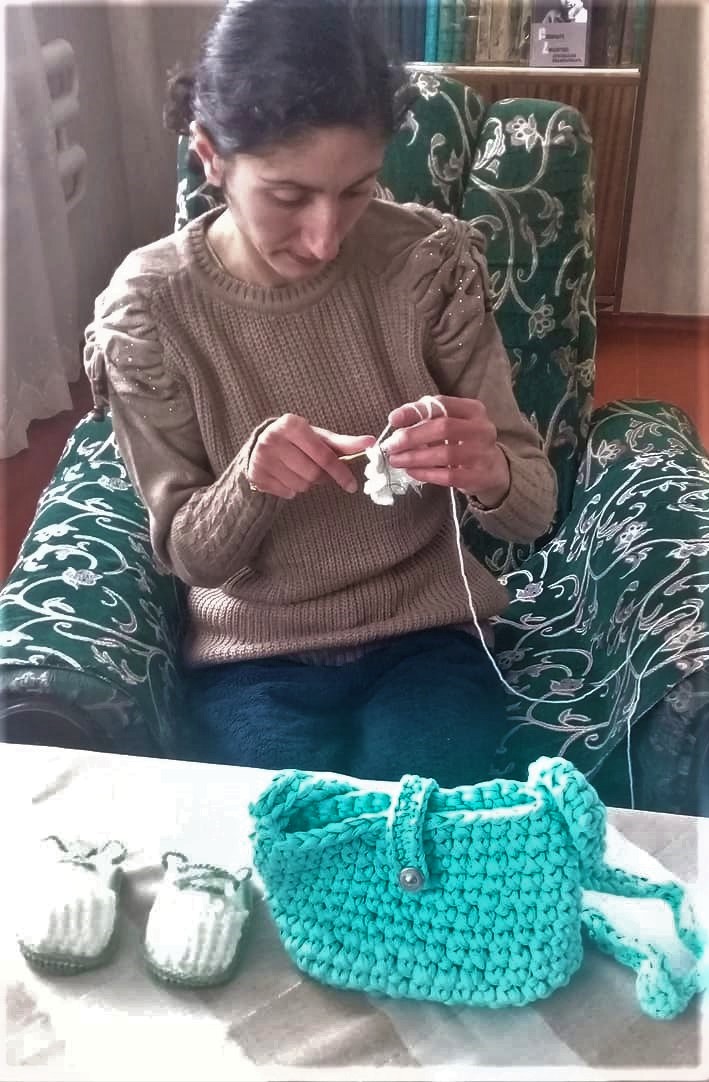
In December 2020, Elisa participated in a training organized by the Agate Rights Defense Center for Women with Disabilities NGO. The training promised to offer general capacity building, psychological support, and handicraft skills. As soon as she saw the announcement, Elisa knew she had to attend as she had been watching videos about crocheting on YouTube for a while.
In the beginning, she had some concerns. “I was thinking that the process of crafting different items wouldn’t be clear via Zoom. I was afraid I wouldn’t be able to handle it and would not be able to complete even half of the task,” Elisa recalls.
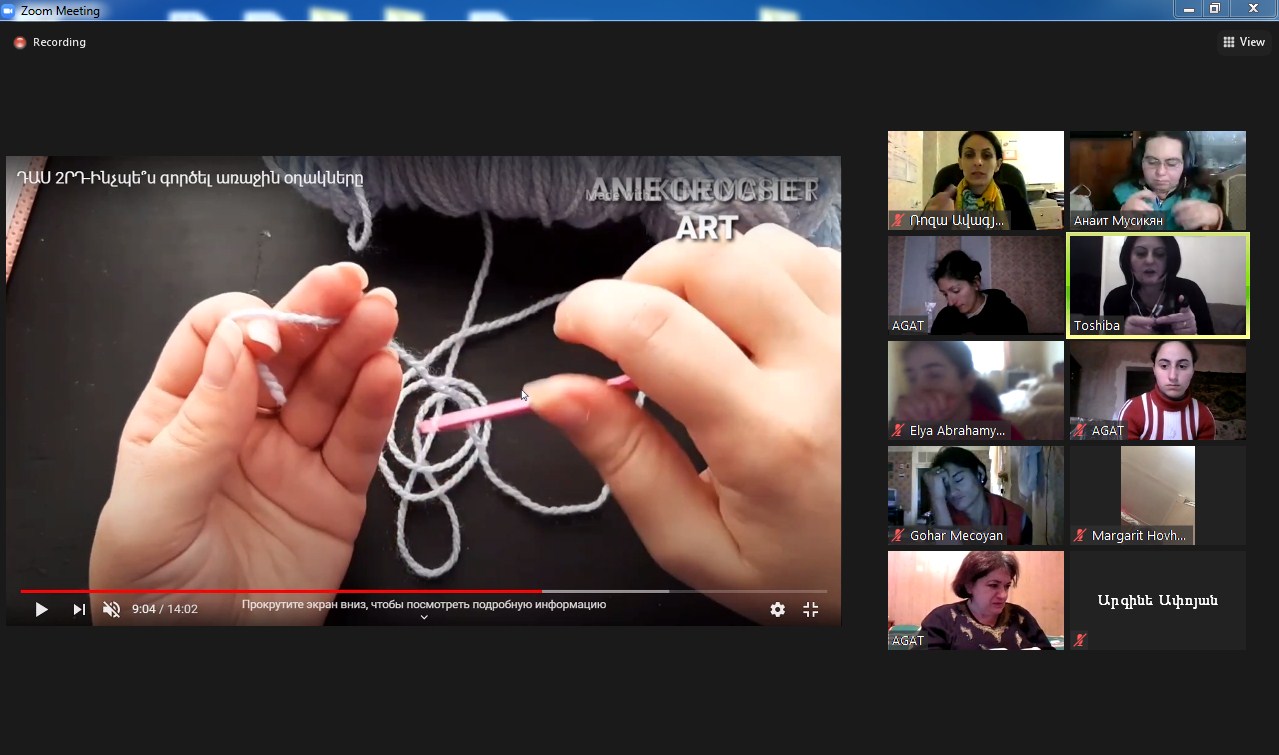
But her experience turned out to be the opposite. The bag she crafted during the training proved to be popular and some people expressed their interest in buying it.
“Not only did I learn to make beautiful items, but I also received an opportunity to sell them and generate an income. In the future, this can even become a small business,” says Elisa, who had always wanted to learn crocheting.
Elisa’s story is not unique. In total, 32 women with disabilities attended the training provided by the Agate Rights Defense Center for Women with Disabilities NGO, in the framework of the “EU 4 Gender Equality: Together against Gender Stereotypes and Gender-Based Violence” programme, funded by the European Union and implemented jointly by UN Women and UNFPA.
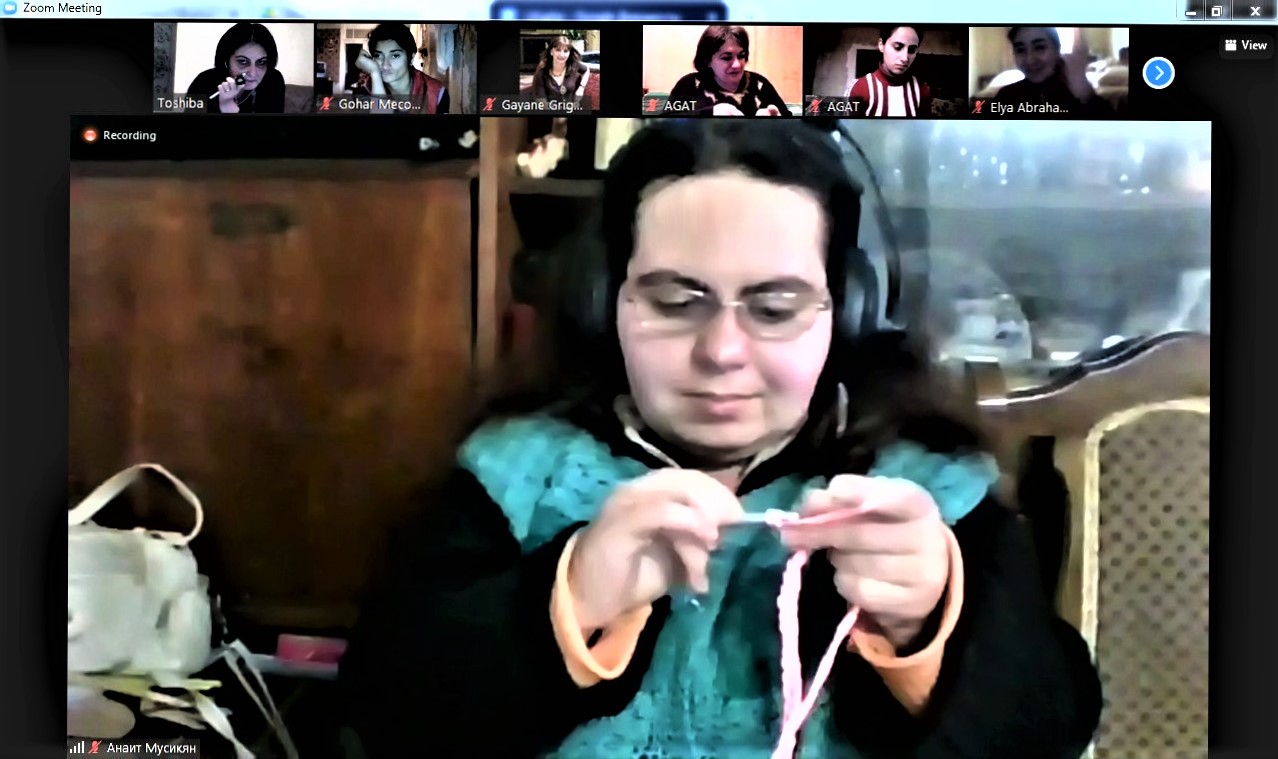
Anahit Musikyan, a woman with a physical disability, was another participant in the training. She is 30 years-old and lives in Gyumri as well. Anahit was inspired by crocheting so much that she used the threads provided in the framework of the project very fast. “I had to undo my crafts several times so I could knit new ones,” she says smiling.
In addition to the handicraft skills, the participants also gained general knowledge that will allow them to improve their quality of life and benefitted from individual and group psychological counselling. Persons with hearing disabilities were also able to join the trainings and were provided with Armenian sign language translation.
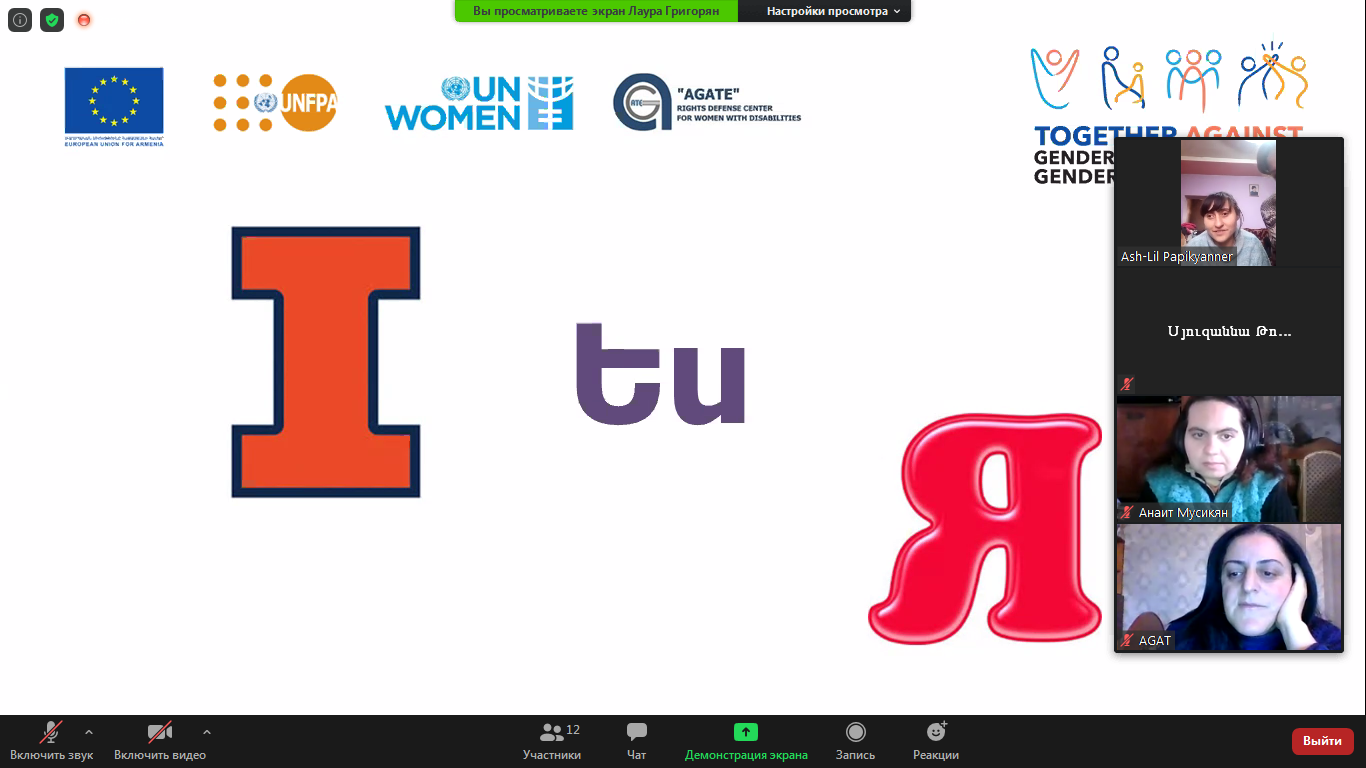
One of the participants, who wishes to remain anonymous, acknowledges that the start of the counselling coincided with a difficult period in her life: “The individual sessions helped me relax. I felt that I was not lonely with my problem anymore and that I could take a break to contemplate, make decisions and move forward,” she says, adding that she will miss the online group meetings, especially as the COVID-19 pandemic continues.
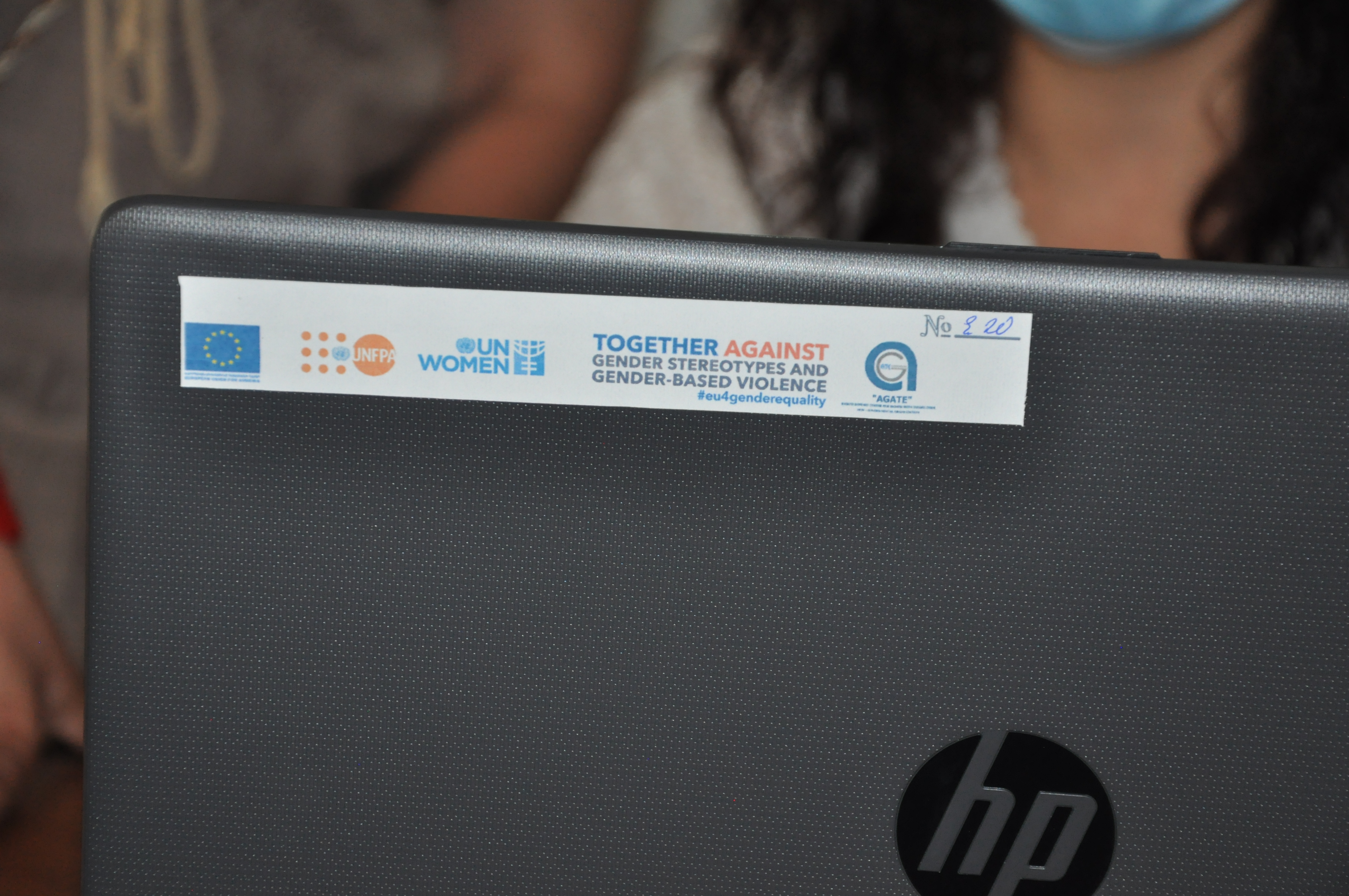
Fortunately, the participants who lacked the technical means necessary for participating in the online trainings received notebooks that they could use to keep connected. For Manushak Nersisyan, a 50 years-old woman with a mobility disability from the Goghovit village in the Shirak region, it was a lifeline. The notebook allowed her to also join another training on community development.
Her business plan was successful, and she received 600 Euro to produce linen items and sell them. “If I can make 25,000 Armenian drams (around 43 Euro) a month, that will be very helpful to me,” Manushak says gratefully.
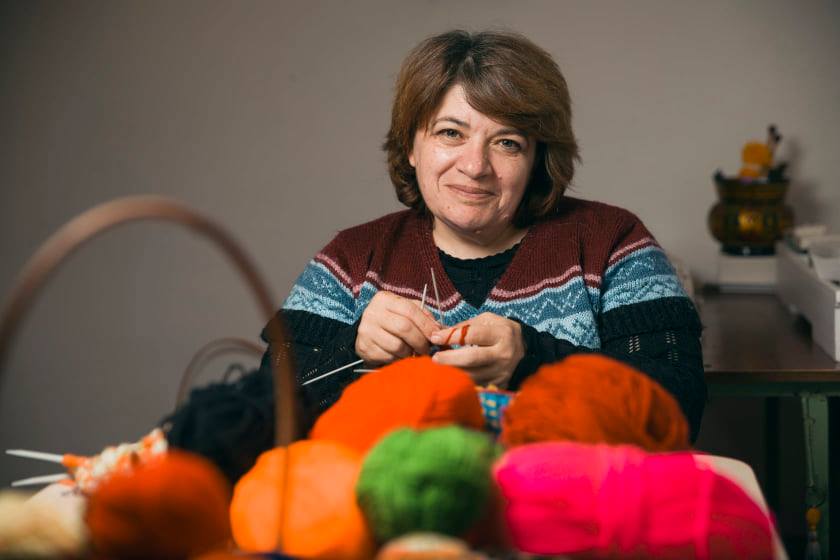
In the end, the 32 women graduated the trainings having gained new capacities and skills, but also feeling some sorrow and a big willingness to learn even more. “On one hand, I am a little bit sad for the end of the project. But on the other, I am twice as happy for my ability to craft items that people liked a lot and some even wanted to buy,” Elisa says.
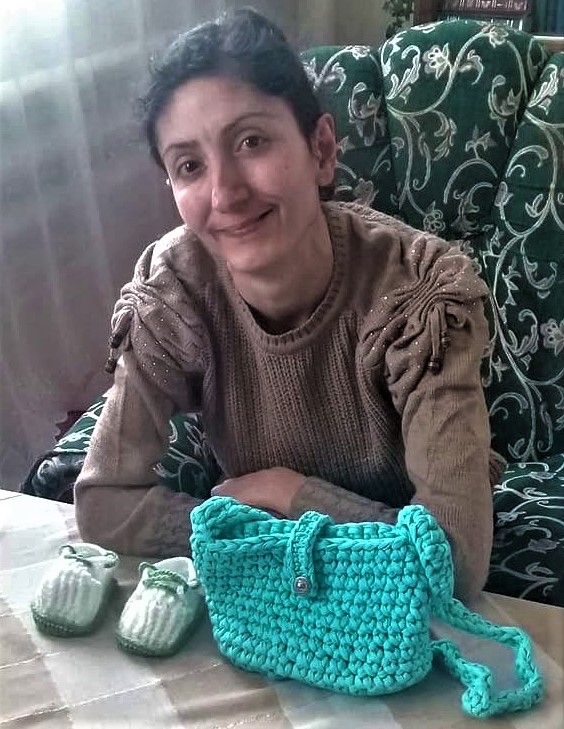
* According to the recent data 92,097 women with disabilities live in Armenia.
***
This activity was implemented in the context of the “EU 4 Gender Equality: Together against Gender Stereotypes and Gender-Based Violence” programme, funded by the European Union and implemented jointly by UN Women and UNFPA. In Armenia the programme is implemented by UNFPA Armenia and its partners in three EU target regions: Shirak, Lori, and Tavush.



